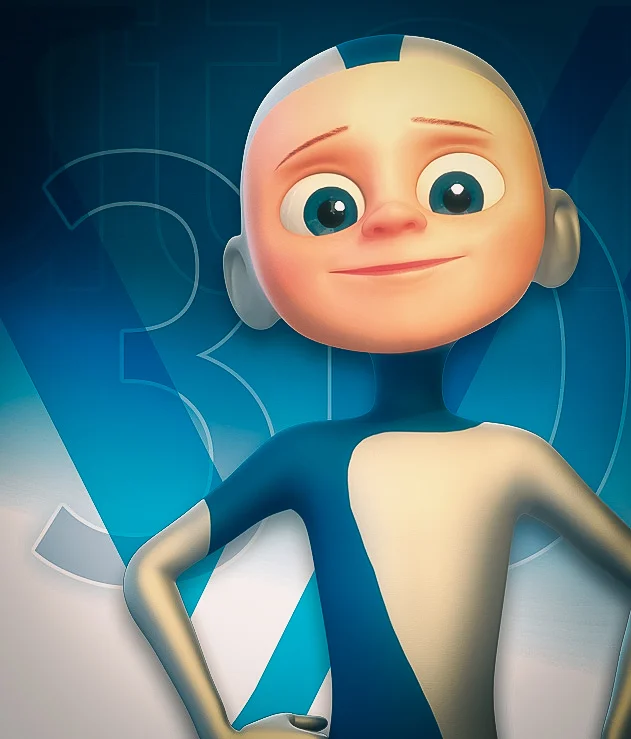 Image: Franchise Logo (Wikipedia)
Image: Franchise Logo (Wikipedia)
Planet of the Apes Series
The "Planet of the Apes" series is one of the most enduring franchises in science fiction cinema. From its origins in the 1960s to its modern reboots, the series has captivated audiences with its thought-provoking themes, groundbreaking special effects, and storytelling.
Origins of Planet of the Apes
The "Planet of the Apes" franchise originated from the 1963 French novel "La Planète des singes" (translated as "Planet of the Apes") by Pierre Boulle. The novel tells the story of a group of astronauts who crash-land on a distant planet where intelligent apes dominate a primitive human race. The book's themes of societal roles, human nature, and the potential for a dystopian future resonated with readers and caught the attention of Hollywood producers.
The Movie Series
The "Planet of the Apes" series began with the iconic 1968 film adaptation, directed by Franklin J. Schaffner and starring Charlton Heston. The success of the original film led to the creation of a multi-film franchise that includes:
- Planet of the Apes (1968)
- Beneath the Planet of the Apes (1970)
- Escape from the Planet of the Apes (1971)
- Conquest of the Planet of the Apes (1972)
- Battle for the Planet of the Apes (1973)
- Planet of the Apes (2001) - A remake directed by Tim Burton
- Rise of the Planet of the Apes (2011)
- Dawn of the Planet of the Apes (2014)
- War for the Planet of the Apes (2017)
Each film contributed to the expansion of the series' lore and deepened the exploration of its central themes. The original film's shocking twist ending, where the protagonist discovers that the "alien" planet is actually a post-apocalyptic Earth, remains one of the most memorable moments in cinema history.
How Did It Become a Movie Franchise?
The success of the original "Planet of the Apes" film was due in part to its innovative special effects, makeup, and thought-provoking storyline.
The movie's makeup artist, John Chambers, received an honorary Academy Award for his groundbreaking work in creating the ape characters. The film's critical and commercial success led to the production of sequels that continued the story and expanded the universe.
The franchise's ability to evolve with the times has been key to its longevity. The 2001 remake by Tim Burton brought the series to a new generation, although it received mixed reviews.
The resurgence of the franchise came with the 2011 reboot, "Rise of the Planet of the Apes," which used advanced motion capture technology to bring the apes to life in a more realistic and emotionally engaging way.
Andy Serkis's performance as Caesar, the intelligent chimpanzee leader, was particularly lauded and set a new standard for motion capture acting.
Has It Become a Video Game?
Yes, the "Planet of the Apes" franchise has also ventured into the world of video games. Various games based on the series have been released over the years, allowing fans to immerse themselves in the "Planet of the Apes" universe interactively. Notable titles include:
- Planet of the Apes: The Official Game (2001) - A game based on Tim Burton's remake, available on PlayStation and PC.
- Planet of the Apes: Last Frontier (2017) - A narrative-driven game set between the events of "Dawn of the Planet of the Apes" and "War for the Planet of the Apes."
These games allow players to experience the conflicts and challenges faced by both humans and apes in the series, adding a new dimension to the franchise's storytelling.
How Does It Captivate Audiences?
The "Planet of the Apes" series captivates audiences through its unique blend of science fiction, social commentary, and emotional depth. Several factors contribute to its enduring appeal:
- Thought-Provoking Themes: The series explores complex themes such as the nature of humanity, societal roles, and the consequences of technological advancement. These themes resonate with audiences and provoke thoughtful discussions.
- Compelling Characters: The franchise features memorable characters, both human and ape, whose personal struggles and growth are central to the story. Caesar's journey from a lab experiment to a revolutionary leader is particularly compelling.
- Innovative Visual Effects: The series has consistently pushed the boundaries of visual effects, from the groundbreaking makeup in the original films to the cutting-edge motion capture technology in the reboots.
- Emotional Storytelling: The films balance action and spectacle with emotional, character-driven storytelling. The relationships between characters, especially the bond between Caesar and his human caretakers, add depth and heart to the series.
- Cultural Relevance: The "Planet of the Apes" series often reflects contemporary societal issues, making it relevant to audiences across different generations.
Will Planet of the Apes Continue in the Future?
Given its enduring popularity and the success of the recent reboots, it is likely that the "Planet of the Apes" franchise will continue to evolve and expand in the future. There have been discussions about new films and potential spin-offs that explore different aspects of the "Planet of the Apes" universe.
Additionally, the advancements in technology and storytelling techniques offer exciting possibilities for future installments. Whether through new films, television series, or interactive media, the "Planet of the Apes" franchise is poised to remain a significant part of popular culture.
Frequently Asked Questions
What is the "Planet of the Apes" series about? The "Planet of the Apes" series explores a dystopian future where intelligent apes dominate a world once ruled by humans. The films address themes of societal roles, human nature, and the consequences of technological advancement.
How did the "Planet of the Apes" become a franchise? The success of the original 1968 film, with its innovative special effects and compelling storyline, led to the production of multiple sequels, remakes, and reboots, expanding the universe and deepening its themes.
Has the "Planet of the Apes" series been adapted into video games? Yes, the franchise has been adapted into several video games, allowing fans to engage with the "Planet of the Apes" universe interactively.
What makes the "Planet of the Apes" series appealing to audiences? The series captivates audiences with its thought-provoking themes, compelling characters, innovative visual effects, emotional storytelling, and cultural relevance.
Will the "Planet of the Apes" continue in the future? Given its enduring popularity and recent successes, it is likely that the "Planet of the Apes" franchise will continue to evolve with new films, spin-offs, and other media.
Key Takeaways
- The "Planet of the Apes" franchise originated from Pierre Boulle's 1963 novel and was first adapted into a film in 1968.
- The series includes multiple sequels, remakes, and reboots that have expanded its universe and deepened its themes.
- The franchise's ability to evolve with technology and societal issues has contributed to its enduring appeal.
- "Planet of the Apes" has also been adapted into video games, offering fans an interactive way to engage with the story.
- The series captivates audiences with its thought-provoking themes, compelling characters, innovative visual effects, and emotional storytelling.
- The franchise is likely to continue evolving in the future with new films and media adaptations.
The "Planet of the Apes" series is a landmark in science fiction cinema, offering a unique blend of thrilling action, deep philosophical questions, and groundbreaking visual effects.
For those inspired by the artistry and innovation of the "Planet of the Apes" series, VANAS Online Animation School offers programs in Animation, Visual Effects, and Video Games. With expert instruction and a focus on practical skills, VANAS can help you turn your passion for storytelling and visual arts into a rewarding career. Visit VANAS to launch your career today.







